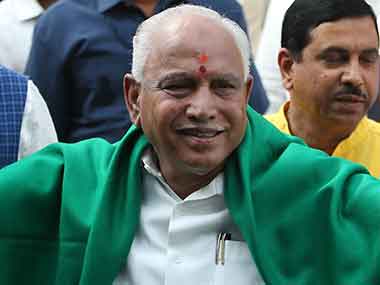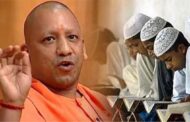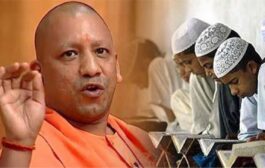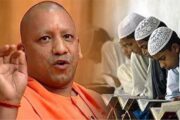When a Republic is held hostage to unhinged political polarisation, one gets incidents such as the Justice AK Sikri controversy where a sitting judge of the Supreme Court, a man of honour and integrity, is dragged through the mud of slander and ignominy so that a political point may be proved. This case should instil fear in right-minded people about the depths that our political discourse may yet plummet as we approach an inflective point in India’s history. The upcoming Lok Sabha election is not an election. It is war, and everything is kosher.
In this age of information, the first casualty of war is the truth. Manipulation of truth is necessary to create a narrative. In the long run, it may irrevocably damage public institutions and have a deleterious effect on democracy, but the immediacy of political needs supersedes such fears.
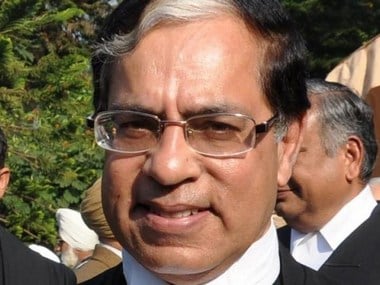
Democracy thrives on debates, and they make it possible for the electorate to make an informed choice. But if a debate becomes debased, mired in falsehood and mirrors the disinformation tactics mastered by autocratic regimes, it eventually generates a deep disconnect between the people and the politicians who are mandated to represent them. The end result is a mass disaffection with politics and cynicism towards democracy. We are witnessing that stage today.
The media can play a constructive role in acting as a bridge to address that disconnect. It possesses the power to shape and guide the debate in the right direction if it notices that politicians are manipulating the truth. The problem is, instead of acting as the ‘watchdog’ of democracy, media has become a wilful tool of disinformation and subversion of truth. Consequently, far from acting as the bridge between the disaffected people and politicians by staying on the right side of facts, it is reinforcing polarisation and amplifying the challenges to democracy.
The Justice Sikri controversy will eventually die down and become lesser than a footnote in history. But the damage to democracy and the decline in the level of trust in institutions is permanent. The next time Justice Sikri — the second senior-most judge in Supreme Court — delivers a verdict in a case involving the government of the day or any other relevant political actors, that verdict will be vulnerable to partisan interpretations. The end result is waning public faith in the integrity of the highest court of the land.
The Congress, as a party that has been in power for the better part of India’s journey since Independence, must reflect on the damage it is causing to institutions by taking these irresponsible positions. Politics is cyclical in nature. It won’t be long before the party returns to power. It must understand that it is endangering its own position by weakening public institutions because it is the strength of the institutions that ultimately sustains democracy.
The Congress had hailed the Supreme Court’s decision in May this year when a three-judge bench headed by Justice Sikri had slashed BJP chief minister BS Yeddyurappa’s time drastically from 15 days to just 24 hours to prove his majority through a floor test, thereby constricting his options of influencing rival lawmakers. The Congress had then commented that “democracy has been restored”.
Rahul Gandhi also didn’t waste time in taking credit when Justice Sikri, part of a five-judge Constitutional Bench of the Supreme Court to rule on Aadhaar, in September this year struck down Section 57 of the Aadhaar Act permitting private entities to avail Aadhaar data.
For Congress, Aadhaar was an instrument of empowerment.
For the BJP, Aadhaar is a tool of oppression and surveillance.
Thank you Supreme Court for supporting the Congress vision and protecting 🇮🇳. #AadhaarVerdict
— Rahul Gandhi (@RahulGandhi) September 26, 2018
Now that Justice Sikri — as a nominee of the Chief Justice of India — in his wisdom and as a part of the three-member PM-led high-powered selection committee voted to remove Alok Verma as CBI director, suddenly his integrity is suspect and ulterior motives are being attached to his decision. Is he pliable enough to come under pressure?
When the scales of justice are tampered with, anarchy reigns.
This PM will stop at nothing, stoop to anything & destroy everything, to cover up the #RafaleScam. He’s driven by fear. It’s this fear that is making him corrupt & destroy key institutions.https://t.co/IfYHf2EMGd
— Rahul Gandhi (@RahulGandhi) January 13, 2019
The unfortunate mudslinging has prompted Justice Sikri to withdraw his consent for a post-retirement seat in the Commonwealth Secretariat Arbitral Tribunal (CSAT) which the government had offered him in the first week of December last year, much before the Supreme Court had even heard the petitions challenging the Centre’s decision to send Verma on leave. It obviously precludes the decision taken by CJI Ranjan Gogoi to appoint Justice Sikri as his representative in the three-member, high-powered selection committee.
“The SC judgment (on Verma being sent on leave) came in January first week and till the pronouncement of judgment, there was no way I would have known that I would one day be nominated by the Chief Justice of India to take part in the selection committee meeting on the desirability of Verma’s continuance as CBI director,” Justice Sikri was quoted, as saying in the Times of India. The newspaper also carried his strong refutation that CSAT appointment was a “plum posting”. Justice Sikri called it “insignificant”, one that carries no remuneration and doesn’t require him to be based abroad.
Justice Markandey Katju, former judge of the Supreme Court and ex-chief justice of Delhi High Court has forcefully backed his former colleague and slammed the media report — which formed the basis of Congress president’s insinuation against Justice Sikri — as “fake news”.
So to call it a ‘plum posting ‘ as was done in the story in @ThePrintIndia is a complete distortion and fake news.
It is a low attempt by a journalist to sensationalise and peddle ‘masala’ to the public, which is the regular habit of most Indian journalists nowadays
— Markandey Katju (@mkatju) January 14, 2019
Justice Katju, who in the past has never shied away from criticising the Narendra Modi government, in two lengthy Facebook posts called Justice Sikri an “outstanding, totally upright, extremely competent and hard-working judge”, termed the media report as “half-truth” that “can be as bad, if not worse than a total lie” and called upon the media to apologise to Justice Sikri for “sullying and besmearing” his image.
In another post, Justice Katju claimed to be quoting Justice Sikri in explaining the basis behind his decision and answering a key Congress challenge on why Verma was not given a hearing by the three-member selection committee. Justice Katju’s contention also found support from senior lawyers who said that Justice Sikri was “unfairly targeted” by some political leaders and activist-lawyers and that it was an “unnecessary controversy”.
Be that as it may, the ball has been set rolling and much as the Supreme Court judge at the centre of all attention wants the controversy “to die”, it won’t. There will be new fronts opened every day. Congress leader Mallikarjun Kharge — the third member of the high-powered committee who dissented from the majority decision — now wants CVC report on Alok Verma to be made public. Congress alleges that “the removal of Verma on 10 January, 2019, was made without following either the due process of law or the principles of natural justice”.
As we head into the election season, expect more such fusillade. The key question is the price that democracy must pay for making public institutions the pawns in larger battle.
source: Firstpost.com


